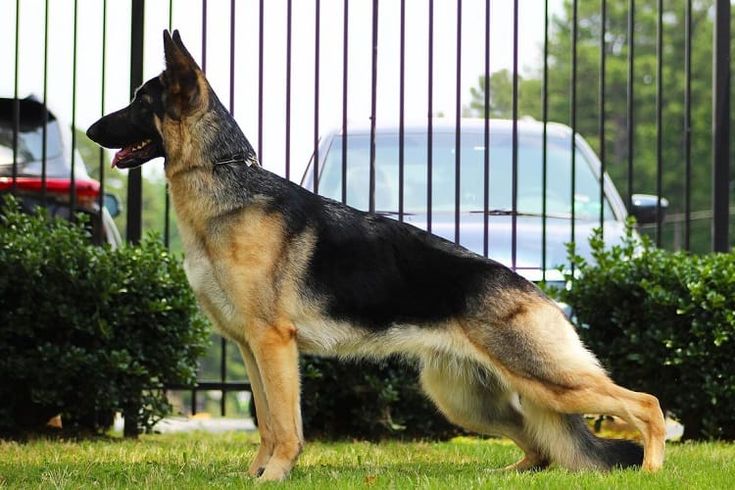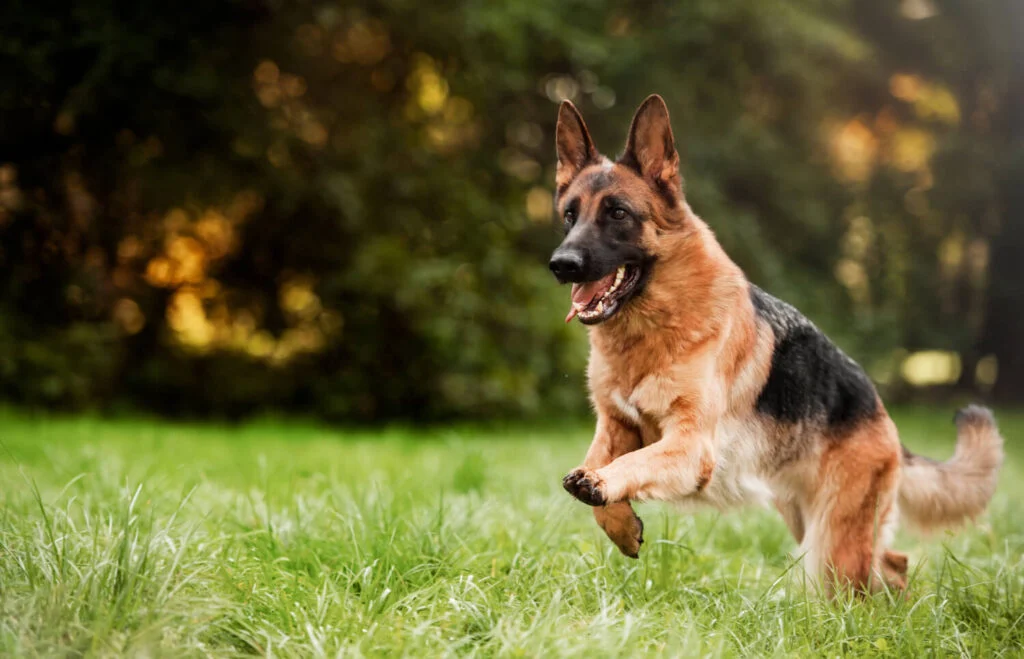German Shepherds, one of the most popular breeds in the world, are renowned for their intelligence, loyalty, and resolute bravery. My personal experiences with these canines have only strengthened the belief that their temperament goes beyond mere stereotypes. They are not just pets; they are dedicated members of various sectors, including being essential K-9 officers and indispensable assets to search-and-rescue teams.
These remarkable dogs have etched stories of valor in various domains, particularly in their well-known military service and pivotal roles in rescue efforts, such as the unforgettable contribution during the aftermath of the World Trade Center tragedy. The temperament of German Shepherds encompasses a range of qualities, from their courageous nature to a playful disposition that makes them great companions, especially with children.
What sets German Shepherds apart is their unique temperament—a perfect blend of intelligence and loyalty. They not only provide unwavering companionship but also excel in various roles owing to their exceptional temperament. Whether it’s their involvement in military service or serving as a family guardian, their disposition adapts seamlessly to the demands of the task at hand.
A key aspect of maintaining their excellent temperament lies in the balance of mental and physical stimulation. These dogs are not just well-suited for tasks; they thrive on challenges that provide both mental stimulation and the necessary physical stimulation. It’s this balance that makes them not just obedient, but proactive in their roles

Overview of German Shepherds
German Shepherds, renowned for their versatility, epitomize the epitome of a working breed. Bred initially for herding and flock protection during rigorous farm work, their traits extend beyond mere physical prowess. The breed’s strength is matched only by its intelligence. With upright ears and a straight, low-carried tail, the German Shepherd’s distinctive appearance reflects a purposeful blend of form and function.
In the early 20th century, visionary German cavalry officer Captain Max von Stephanitz played a pivotal role in developing what he envisioned as the ideal German herding dog. Through meticulous crossbreeding of dogs from various strains across Germany, he forged the path to the creation of today’s German Shepherd. The breed’s roots delve deep into history, with an ancestor that served as a foundation for the modern-day incarnation we know and love.
The German Shepherd’s utility extends far beyond the realms of farm herding. From humble beginnings, these remarkable dogs have emerged as quintessential partners in various roles: from the traditional sheep herder to the indomitable police dog, the steadfast guard dog, and the empathetic disability assistance dog. They have seamlessly integrated into diverse fields, serving as a reliable border patrol dog, an efficient explosive detection dog, and an invaluable search-and-rescue dogs.
In the realm of military service, German Shepherds have etched their mark as astute military warfare dogs. Yet, amidst these high-stakes roles, they effortlessly transition into the gentle mantle of a beloved companion animal dog.
Veterinary advisor Dr. Jennifer Sperry, D.V.M., affiliated with Pets Plus Us, a prominent pet insurance company in Canada, underscores the breed’s unique combination of physical prowess and intelligence. She emphasizes the importance of understanding the breed’s history and purpose when considering them as pets. According to her, this knowledge informs responsible ownership, ensuring these dogs lead fulfilling lives.
Charlotte Reed, a respected pet care and lifestyle expert, and the host of The Pet Buzz, a nationally syndicated pet talk radio show, attests to the German Shepherd’s adaptability. Her experiences echo the sentiments of countless enthusiasts who have witnessed the breed seamlessly integrate into various aspects of human life.
Physical Characteristics of German Shepherds
German Shepherds, known for their tall and strong build, exhibit a perfect balance of nobility and strength. The breed, recognized by the German Shepherd Dog Club of America, boasts smooth curves highlighting a well-muscled frame. Their double coat, dense and straight, lies close to the body, requiring brushing every few days and an occasional bath to manage shedding, which occurs once or twice a year.
Males typically weigh between 65 to 90 pounds and grow to a height of 24 to 26 inches, while females range from 50 to 70 pounds, reaching 22 to 24 inches. The distinctive features of their head, including almond-shaped, brown eyes, give them a composed and curious expression, always seeming to await instructions from their human companions. In my experience, German Shepherds are not merely a breed; they embody a unique blend of physical prowess and noble companionship.
My experience with German Shepherd temperament

From my perspective, delving into the temperament of the German Shepherd reveals an intriguing journey. These canines, a product of precise breeding and well-defined genes, boast a rich history as sheepherding dogs. The roots of their athleticism and compulsion to chase are deeply embedded in their past.
A Unique Work Ethic
What sets them apart is not just their swift responsiveness but also their remarkable ability to work alongside a human shepherd/master. Beyond their historical roles as military messengers and sentry dogs, German Shepherds seamlessly transition into roles like personal protection and as invaluable police dogs. Their inherent aloofness towards strangers underscores their innate protective instincts.
Beyond Territorial Instincts
These canines, with their ingrained territorial instincts, extend their services to search and rescue missions. The same traits make them invaluable in specialized tasks like bomb detection and drug detection. The adaptability of their temperament extends further to aiding and guiding the blind.
The Essence of Intelligence
German Shepherds are not just a product of their genetic makeup but a testament to their high intelligence and unwavering self-confidence. Their trainability is remarkable, marked by an ability to focus on tasks and swiftly understand and ask for direction. Every behavior seems intricately woven into their essence, as if they were developed to do precisely what they excel at.
Unveiling the Challenge
However, in the contemporary landscape, finding a German Shepherd with the ideal temperament for a good family companion can be challenging. Their inherent traits, while remarkable, sometimes pose difficulties in aligning with the expectations of a domestic setting. Yet, this challenge is a testament to their history and the unique blend of qualities that define the German Shepherd.
Different lines have different temperament
When considering German Shepherds, it’s vital to acknowledge the inherent diversity in their temperament. Breeders play a pivotal role in shaping these traits through selective breeding. Working lines often exhibit high-drive temperaments, making them ideal for tasks like police work or protection-dog sports. On the other hand, show lines focus on conforming to the breed standard in the show ring.
Individual pups within a litter can display variations in temperament. Some may lean towards the softer-tempered side, while others are more vigorous and intense. As a family companion, it’s crucial to carefully assess the average temperament of the lineage. This evaluation ensures a suitable match between the pup’s disposition and the owner’s lifestyle.
My experience highlights that the competitive and detailed world of breeding demands a nuanced understanding of how traits inherit and produce a desired temperament. While the allure of a much-sounding temperament sounds nice, the reality is that each pup is an individual with unique characteristics.
German Shepherd Temperament and Personality Traits
German shepherds are protective dogs.
They are generally great family members and often get along great with kids and other animals,” Ellis says. “They have gained popularity due to their intelligence and how brave and confident they are.
Positive Temperament Traits
Intelligence
German Shepherds are very intelligent and loyal. They are very quick to learn the things and can excel in various trainings and Working process
Work drive
German Shepherds are very happiest when they have something to do. They have the ability and posses very strong drive for work. Thanks to having the breed
Loyalty
GSDs, well known for their intelligence, form strong bonds and exhibit unwavering loyalty to family. Protective instincts drive them to often go to great lengths, ensuring the safety and well-being of their family members.
Courage
German Shepherds are renowned for their versatility as K9s, excelling as military dogs, search-and-rescue dogs, and steadfast guard dogs. Their innate fearlessness and bravery underscore their exceptional temperament, making them a trusted choice in various roles.
Alertness
German Shepherds (GSDs) are exceptional watchdogs known for their keen sense of alertness. Their ability to quickly notice changes in the environment makes them popular choices to keep watch, ensuring security 24 hours a day.
Confidence
With a confident and composed demeanor, he handles new situations with ease, not easily rattled.
Obedience
German Shepherds are renowned for their exceptional temperament and intelligence. Their eagerness to please makes them highly trainable, and owners find that these dogs respond well to commands, showcasing a high level of obedience.
Energetic
German Shepherds thrive on their high energy levels, making them exceptionally active dogs. Providing both physical exercise and mental stimulation is key, making them great companions for outdoor activities and well-suited for various dog sports.
Playfulness
Don’t let the serious look fool you; beneath the poised exterior, the GSD reveals a remarkably playful side. Known for being protective, they thoroughly enjoy interactive play with both other dogs and family members, including adults and children.
Adaptability
German Shepherds, highly adaptable dogs, effortlessly thrive in various environments—from farms to bustling cities. Their innate intelligence and energy allow them to provide both mental and physical activity, ensuring they don’t become bored.
Easy grooming
The GSD (German Shepherd Dog) boasts a double coat that does shed, but fear not—it’s relatively low-maintenance. Regular brushing is necessary to manage the shedding, making it an easy-to-groom breed
Negative Temperament Traits
Aggressive
Young GSDs, when properly socialized, make excellent pets. Their protective nature, especially towards their family, doesn’t translate to being aggressive towards people.
High prey drive
The GSD, known for its high prey drive, is often tempted during daily walks to chase small animals, making it a challenging aspect for owners. It’s crucial to navigate carefully, especially around the neighborhood or small pets and livestock, to ensure a harmonious walking experience.
High energy
Most German Shepherds thrive as working dogs due to their high energy levels. However, when left alone without a proper outlet for their energy, they may resort to destructive behaviors like destroying furniture or stealing items around the house. Providing these intelligent dogs with the right stimulation and tasks ensures they do well even when unsupervised.
Exercise
German Shepherds, a high-energy breed, require a lot of exercise to thrive. An owner must be prepared for their daily routine, as a mere “walk around the block” won’t be enough. Poorly exercised dogs often become destructive, so consider options like hiring a dog walker for daily vigorous exercise.
Shedding
To minimize GSD sheds, the owner should invest in double coats, establish a regular routine for washing and brushing, and wisely pick up a quality vacuum to effectively manage the shedding hair.
How German Shepherds’ Temperament Evolves in Different Life Stages
The German Shepherd, known for its intelligence and versatility, evolves through distinct growth stages influenced by genetics and nutrition throughout its lifetime. Proper training, care, and socialization, coupled with a loving family environment, play pivotal roles in shaping their temperament and overall health.
Puppyhood and Early Temperament
Raising a German Shepherd puppy involves consistent training and exercise to ensure they navigate the world in a confident manner. Socialization with various stimuli, situations, and unfamiliar surfaces is crucial during their fear period. Engaging in both mental and physical stimulation helps prevent destructive behavior. With a strong bond and guidance from the entire human family, the GSD becomes an eager and well-socialized companion, untroubled by hazards like loud noises or children, ultimately growing into a well-adjusted member of the family village.
Adulthood and Mature Temperament
During the early months of adolescence, a 2-year-old pup may exhibit zoomie-type moments, showcasing their energetic and confident nature. To ensure a well-behaved dog moving toward adulthood, practice consistency in training. From agility to obedience trials, ongoing training, and regular hiking, German Shepherds thrive on physical and mental stimulation, making them strong, reliable companions ready to relax at home with the family after a day of fulfilling activities.
Senior Years and Changing Temperament
As German Shepherds gracefully enter their golden years, tailored care becomes crucial. Balancing physical exercise with mental stimulation is key, especially considering the potential challenges of arthritis and degenerative neurological conditions. Shorter, slower walks, relaxed games, and ample outdoor time provide comfort, supporting the mobility and well-being of senior GSDs, ensuring they age gracefully at home while maintaining their keen senses around children, strangers, and their familiar surroundings.
FAQs
Are German Shepherds good house dogs?
German Shepherds are an ideal breed for households with children, known for their intelligence and protective demeanor. However, these active and good-natured dogs can sometimes become anxious or even aggressive if not properly trained and handled, making responsible ownership crucial for families’ choice of a loyal and loving companion.
Which German Shepherd has the best temperament?
When considering the purchase of a working dog for police work or personal protection, it’s crucial to prioritize breeds with a stable temperament and excellent overall health. Opting for a German or Czech working line ensures a strong foundation in Schutzhund and security training, while steering clear of show lines is advised for those concerned about maintaining the dog’s practical working abilities.
Are German Shepherds good or bad dogs?
German Shepherd dogs, considered to be a smart breed, tend to be easy to train and get along well with children and other pets if raised appropriately. However, poorly bred individuals may exhibit high-strung and nervous tendencies, making them leery of strangers. In keeping with their guarding instincts, German Shepherds can be excellent family protectors when well-socialized.
What is the attitude of a German Shepherd?
Confident, courageous, and highly intelligent dogs, with a gentle and incredibly noble demeanor, they make friends effortlessly over time. Known for their loyal and energetic nature, these dogs have a rich history of herding, showcasing their dedication to work and deep connection with their owners.

